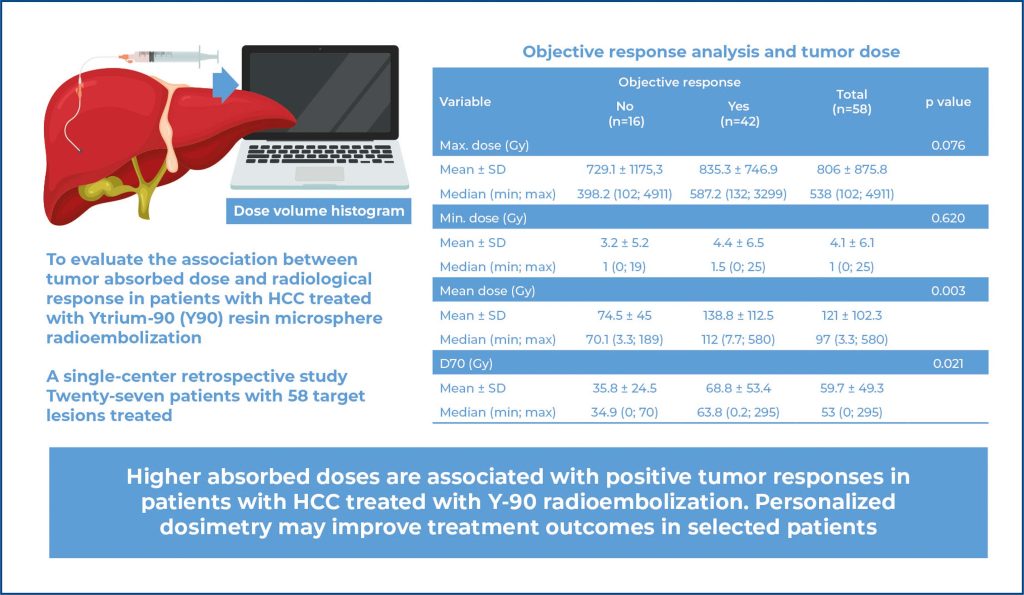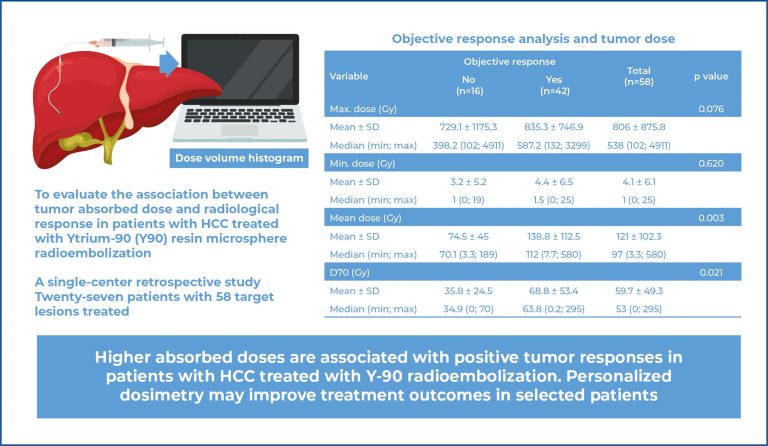einstein (São Paulo). 22/abr/2025;23:eAO1287.
Dose-response relationships in Y90 resin microsphere radioembolization for patients with hepatocellular carcinoma: insights from a Brazilian cohort
DOI: 10.31744/einstein_journal/2025AO1287
Highlights
■ Higher absorbed doses are associated with positive tumor responses in patients with hepatocellular carcinoma treated with Y-90 radioembolization.
■ Personalized dosimetry may improve treatment outcomes in selected patients.
■ Dosimetric parameters such as D30, D50, and D70 also correlate positively with objective responses, emphasizing the importance of precise dose calculation in treatment planning.
ABSTRACT
Objective:
To evaluate the relationship between the absorbed dose and radiological response in patients with hepatocellular carcinoma undergoing resin microsphere radioembolization to enhance treatment precision and potentially adjust protocols for better outcomes.
Methods:
This singlecenter retrospective study was conducted at a quaternary care center in Brazil and comprised 27 patients with 58 target lesions treated between November 2014 and April 2023. The patients’ dosimetric profiles were analyzed using advanced imaging software to assess post-treatment clinical and radiological responses. This study explored the correlation between the absorbed doses and tumor objective responses using statistical analyses to confirm the findings.
Results:
Higher absorbed doses were significantly associated with improved objective responses in the target lesions. The analysis demonstrated that achieving higher dosimetric thresholds correlated with better clinical outcomes, suggesting that a dose-response relationship is essential to optimize treatment protocols.
Conclusion:
These findings emphasize the importance of personalized dosimetry in managing hepatocellular carcinoma using resin microsphere radioembolization. By quantifying the absorbed dose and understanding its impact on tumor response, treatment strategies can be tailored to enhance efficacy and potentially shift palliative treatments toward curative outcomes. This study provides a crucial foundation for dosimetric adjustment and highlights the need for further research in this area, particularly in Brazil.
[…]
Palavras-chave: Carcinoma, hepatocellular; Radiology, interventional; Medical oncology; Microspheres; In vivo dosimetry
205



